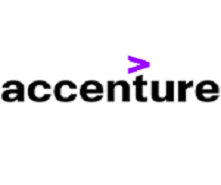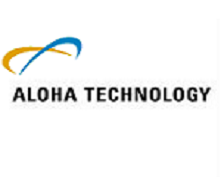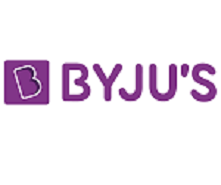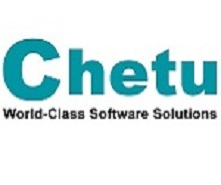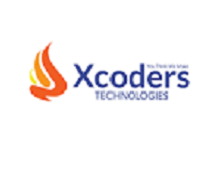M.Tech. (CSE) Course: Details, Eligibility, Fee, Syllabus, Placements
The Master of Technology in Computer Science and Engineering (M.Tech-CSE) is a postgraduate program dedicated to the advanced study of theoretical and practical aspects of computer science and engineering. It is designed to provide students with comprehensive knowledge and specialized skills in various domains of computer science, such as algorithms, computer networks, software engineering, database systems, and emerging areas like artificial intelligence, machine learning, and cyber security. The program typically spans two years and includes a blend of core courses, electives, laboratory work, seminars, and project-based learning, culminating in a significant research or industry-related project. M.Tech-CSE graduates are well-prepared for a variety of career paths, including roles in software development, data science, IT consulting, and research and development, as well as academic positions. This program equips students with the analytical, problem-solving, and technical skills required to excel in the dynamic and rapidly evolving field of computer science and engineering.

Program Objectives
- Advanced Knowledge Acquisition: Equip students with deep theoretical and practical knowledge in computer science and engineering.
- Research and Innovation: Foster the ability to conduct independent research and contribute to technological advancements.
- Specialization: Offer expertise in core and emerging areas like artificial intelligence, machine learning, and cyber security.
- Problem-Solving Skills: Develop strong analytical and problem-solving abilities to tackle complex engineering challenges.
- Technical Proficiency: Enhance skills in software development, system design, and practical implementation.
- Industry Readiness: Prepare students for professional roles through internships, projects, and industry collaborations.
- Leadership and Communication: Cultivate leadership qualities, teamwork, and effective communication skills.
- Ethical and Social Awareness: Promote ethical practices and understanding of technology's social impact.
- Lifelong Learning: Encourage continuous learning and professional development to keep pace with technological advancements.
- Global Competitiveness: Equip students to compete and succeed in the global technology landscape.
Practical Training
Practical training in an M.Tech-CSE program is essential for translating theoretical knowledge into real-world applications. This training typically encompasses several key components:
- Laboratory Work: Hands-on sessions in various subjects such as algorithms, networks, databases, and operating systems to apply theoretical concepts.
- Projects:
- Minor Projects: Short-term projects, usually undertaken in the first year, focusing on specific topics or small-scale problems.
- Major Projects/Thesis: Extensive research or industry-based projects conducted in the final year, often involving the development of new technologies or solutions to complex problems.
- Internships: Practical experience gained by working with tech companies or research institutions, allowing students to understand industry practices and workflows.
- Workshops and Seminars: Participation in workshops and seminars conducted by industry experts or academic researchers to stay updated with the latest technological trends and innovations.
- Hackathons and Competitions: Engagement in coding competitions, hackathons, and other technical challenges to foster creativity, teamwork, and problem-solving skills.
- Collaborative Projects: Group projects that encourage teamwork, collaboration, and communication among peers, simulating real-world work environments.
- Industry Collaborations: Partnerships with tech companies for live projects, guest lectures, and mentorship, providing insights into industry standards and expectations.
Key Features of M.Tech-CSE
- Advanced Curriculum: Offers a rigorous and advanced curriculum that includes both core courses and electives, covering areas such as algorithms, data structures, computer networks, database systems, software engineering, and emerging technologies like AI and machine learning.
- Specialization Options: Provides opportunities for students to specialize in cutting-edge areas such as cybersecurity, big data analytics, cloud computing, Internet of Things (IoT), robotics, and human-computer interaction.
- Research Focus: Emphasizes research and innovation, encouraging students to engage in independent research projects, publish papers in reputed journals and conferences, and contribute to technological advancements.
- Hands-on Training: Includes extensive laboratory work, practical sessions, and project-based learning to ensure that students gain hands-on experience and practical skills.
- Industry Integration: Features strong industry connections through internships, industry projects, guest lectures, and collaborations with tech companies, providing students with real-world exposure and networking opportunities.
- Experienced Faculty: Taught by experienced and highly qualified faculty members who are experts in their fields and actively involved in research and industry projects.
- Interdisciplinary Approach: Encourages an interdisciplinary approach, allowing students to take courses and collaborate on projects across different domains of science and engineering.
- Global Perspectives: Prepares students for global careers through exposure to international research collaborations, conferences, and opportunities for study abroad programs.
- Ethical and Social Awareness: Promotes ethical practices and awareness of the social impact of technology, encouraging students to consider the broader implications of their work.
- Lifelong Learning: Instills a commitment to lifelong learning and continuous professional development to keep pace with rapid technological changes.
- Career Support: Offers robust career services, including placement assistance, career counseling, workshops on resume writing and interview skills, and networking events with alumni and industry professionals.
- Industry Roles: Software Developer, Data Scientist, System Analyst, Network Engineer, IT Consultant, etc.
- Research and Development: Research Scientist, R&D Engineer, etc.
- Academia: Lecturer, Assistant Professor, etc.
- Entrepreneurship: Starting technology ventures or working in tech startups.
Curriculum
| Subject Code | Subject Name | Credits |
|---|---|---|
| 24MCS101 | Mathematical and Statistical Techniques in Computer Science | 4 |
| 24MCS102 24MCS182 | Advanced Operating Systems | 5 |
| 24MCS103 24MCS183 | Advanced Algorithms | 5 |
| 24MCS104 (A/B/C) | Discipline Elective- I | 3 |
| 24MCS105 (A/B/C) | Discipline Elective- II | 3 |
| 24MDC014 | Research Methodology and IPR | 3 |
| Subject Code | Subject Name | Credits |
|---|---|---|
| 24MCS201 24MCS281 | Computer Vision | 5 |
| 24MCS203 | Soft Computing | 5 |
| 24MCS205(A/B/C) | Discipline Elective – III | 3 |
| 24MCS206(A/B/C) | Discipline Elective – IV | 3 |
| 24MOEXXXX | Open Elective – I | 3 |
| Subject Code | Subject Name | Credits |
|---|---|---|
| 24MOEXXX | Open Elective – II | 3 |
| 24MAEC380 | Indian Knowledge System | 3 |
| 24MCS381 | Seminar | 4 |
| 24MCS382 | Dissertation Phase-I | 6 |
| Subject Code | Subject Name | Credits |
|---|---|---|
| 24MCS481 | Dissertation Phase-II | 14 |
USP's
- Experienced faculty members to enrich comprehensive knowledge.
- Value added courses
- L & T Powered Programmes.
- Guaranteed Campus Internship and Placement Drive.
- Nasscom foundation industry oriented courses
- IBM, TCS advanced technologies program
Fee Structure
| Year | Fee |
|---|---|
| First Year | ₹ 78,000 |
| Second Year | ₹ 70,000 |
Admission Criteria
Bachelors degree or equivalent in the relevant field with at least 60% marks from recognized university or institution
Industrial Visit
Industrial visits are an essential part of the academic curriculum in most of the Graduate and Post-graduate courses. Being a part of interactive learning, such educational visits give students a major exposure to real working environments along with a practical perspective of a theoretical concept relevant to their domain. In addition to that, industrial visits bridge the widening gap between theoretical learning and practical exposure by giving students the first-hand exposure to identify the inputs and outputs for different business operations and processes performed at the workplace.
Discover More
















